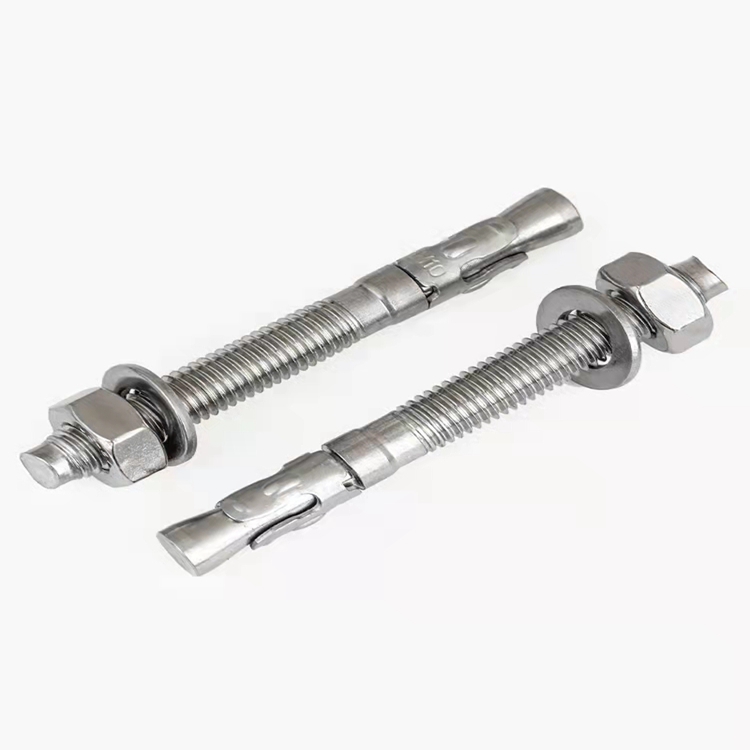Custom Grade 4.8 Flange Nuts for Reliable Performance and Easy Assembly
Oct . 12, 2024 09:28 Back to list
Custom Grade 4.8 Flange Nuts for Reliable Performance and Easy Assembly
Understanding Custom Grade 4.8 Flange Nuts Applications, Benefits, and Sourcing
In the world of mechanical engineering and construction, fasteners play a crucial role in ensuring the integrity and durability of structures and machinery. Among these fasteners, nuts are vital components that often require careful selection based on specific needs. One such type is the custom Grade 4.8 flange nut, which offers distinct advantages for various applications.
What Are Flange Nuts?
Flange nuts are hexagonal nuts that have a circular flange at one end. This unique design is engineered to spread the load over a larger area, helping to prevent damage to the surface beneath. The flange provides a built-in washer effect, making it ideal for applications where load distribution is critical. Flange nuts are commonly used in automotive, construction, and machine assemblies.
Understanding Grade 4.8
The term Grade 4.8 refers to a specific classification in the metric screw thread standard defined by ISO (International Organization for Standardization). The 4 indicates the minimum tensile strength in megapascals (MPa) — in this case, 400 MPa, while the .8 indicates the yield strength, which is typically 80% of the tensile strength. Thus, a Grade 4.8 nut is designed to withstand considerable stress while maintaining structural integrity.
Why Choose Custom Grade 4.8 Flange Nuts?
1. Tailored Specifications Custom flange nuts can be produced to meet specific design requirements such as size, thread type, and finish. This customization ensures compatibility with particular bolts or assemblies, optimizing performance.
2. Enhanced Load Distribution The wider surface area of flange nuts allows for better load distribution compared to standard nuts. This feature minimizes the risk of stripping threads and reduces the likelihood of the fastener loosening over time, which is crucial in high-stress environments.
3. Corrosion Resistance Custom flange nuts can be manufactured with various coatings and materials that enhance their resistance to corrosion and wear. This is particularly important in outdoor or harsh environments where exposure to moisture and chemicals can degrade performance.
4. Ease of Installation The integrated flange allows for easier installation since it can often be fastened without the need for a separate washer. This simplifies assembly processes, saving time and labor costs.
custom grade4.8 flange nuts

Applications of Custom Grade 4
.8 Flange NutsCustom Grade 4.8 flange nuts are utilized across a variety of sectors
- Automotive Industry Used in engine components, chassis assemblies, and other critical areas where strength and reliability are paramount. - Construction Applied in structural steel connections, where load-bearing capabilities are essential. They help ensure the stability and safety of buildings and bridges. - Manufacturing Used in machinery assembly, conveyor systems, and other equipment where robust fastening solutions are required.
Sourcing Custom Grade 4.8 Flange Nuts
When looking to source custom Grade 4.8 flange nuts, it's important to partner with reputable manufacturers who specialize in fasteners. Here are some tips for sourcing
1. Certification and Standards Ensure the manufacturer adheres to relevant industry standards and certifications. This assures that the products meet quality and performance requirements. 2. Material Options Inquire about the material options available for the flange nuts. Depending on the application, different materials may be more suitable.
3. Bulk Orders If you need a large quantity, check if the manufacturer offers competitive pricing for bulk orders.
4. Lead Times Discuss production times to ensure that your project timelines are met without delays.
5. Technical Support Opt for suppliers who offer technical assistance and guidance in selecting the right fastener solutions for your applications.
Conclusion
Custom Grade 4.8 flange nuts provide a reliable and efficient fastening solution across various industries. Their specific features, such as enhanced load distribution and the option for tailored specifications, make them indispensable in high-stress environments. By understanding their benefits and applications, engineers and project managers can make informed decisions to enhance the durability and safety of their projects.
Latest news
-
High-Quality Panel Stud Bolt Reliable Panel Stud Bolt Factory & Suppliers
NewsJul.08,2025
-
High-Precision Fine Thread Locknuts Manufacturer & Supplier Custom Solutions
NewsJul.08,2025
-
PH Imperial Stud Bolt – High Strength Fasteners from Leading Supplier & Factory
NewsJul.07,2025
-
High-Quality Allen Wrench Bolts Leading Factory, Company & Suppliers
NewsJul.07,2025
-
Wholesale Ball Stud Bolt - High Quality Supplier & Factory Price Reliable Wholesale Ball Stud Bolt Company
NewsJul.06,2025
-
High-Strength Alloy Bolts Manufacturer & Supplier Quality Alloy Fasteners Factory
NewsJul.06,2025
